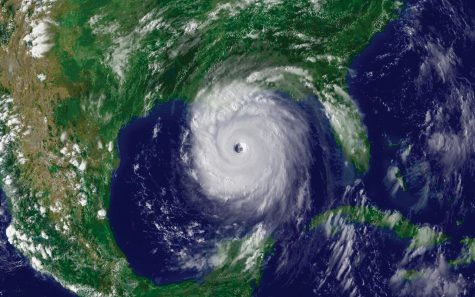Opinion: Disaster Preparedness in Minority Communities
December 11, 2019

Hurricane Katrina was one of the most memorable weather events in the 21st Century. In 2005, the category 5 hurricane caused 125 billion dollars in damage. More than a million were left homeless, and about 2,000 people died.
The whole country watched as television journalists like Anderson Cooper covered the shortcomings of the U.S. government’s response in minority communities. In his interview during the 10-year anniversary of Katrina, he talked about how there were bodies still left out in the streets and in homes days after the storm had passed.
He expressed his anger when he became aware that politicians did not know that there were parts of Louisiana that were in catastrophe and there was a lack of aid in these areas.
Many people believed that the deficiency in disaster aid within certain communities was race related.
Just days after Katrina had passed in 2005, an article titled Race An Issue In Katrina Response was published by CBS News. The article discussed the different reactions to the images and news coverage of the aftermath. One of the major points that stood out to me was that blacks were highly upset about the fact that the African-American community was not involved in the preparation process for this storm.
Their anger is reasonable.
If there had been effort put into planning for a disaster, could this catastrophe in minority communities of Louisiana have been avoided? If there had been more emphasis on disaster preparedness education, would the mention of Hurricane Katrina carry as much significance as it does today?
Preparedness plays a key role in the difference between a natural disaster just striking an area and devastation. Being prepared reduces the vulnerability of communities and builds up their ability to be resilient after an emergency.
In the past, minority communities have not been given as much attention when it comes to preparing for a natural disaster.
According to a study, published by the University of Miami, “Research findings indicate that there are problems in disseminating disaster and emergency information to diverse ethnic populations throughout the United States.”
Because of the gap in the emergency preparedness education system, ethnic and racial minorities have increased vulnerability when a natural disaster strikes an area.
I understand that some may argue that all communities deserve the same type of attention when it comes to issues with preparedness.
However, there does lie a difference in how minority communities perceive emergency preparedness information.
According to a scholarly article by the United States Department of Health and Human Services’ Office of Minority Health, “The increasing population growth of racial and ethnic communities and linguistic groups, each with its own cultural traits and health profiles… presents a challenge to disaster management…industry in this country.”
Information and preparedness tips about anticipated disasters may be brushed off by minority communities for several reasons. One main reason is communication problems between what’s being said on TV and the people within the community.
According to the University of Miami, “Communication problems linked to language are found to be an influence on the vulnerability of racial and ethnic minorities, especially for immigrants.”
There can also be miscommunication when it comes to the terminology that is used on these information sources.
According to a study published by Massey University, ”The information-action link assumes that recipients automatically assimilate, comprehend, and utilize information in forming and following action plans. This assumption is often unjustified.”
These are just some of the reasons why disaster preparedness educators need to give more attention to minority communities. We have to find better ways to go about encouraging them to prepare.
The best way to do this is by teaching the leaders of the minority community about the importance of preparedness and having them talk to the citizens within this minority group.
According to the University of Miami,“Emergency managers and community leaders should utilize social, family, and kin networks to disseminate hazard, emergency, and hurricane mitigation information.”
Using leaders of that community as an advocate for emergency preparedness, increases the chances of the audience actually listening because there lies trust within the relationship and there is a lower chance of a miscommunication.
Once the community is aware and clearly understands the importance of preparing for a natural disaster, they will be able to become resilient to destructive weather events like Katrina that are to come in the future. From there, we will be able to create a true culture of preparedness within our nation.



